#rail workers
Text
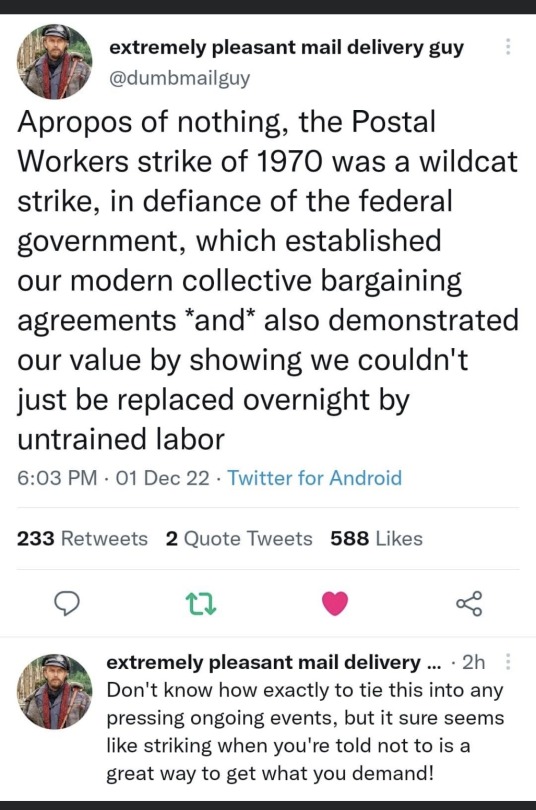
18K notes
·
View notes
Text

843 notes
·
View notes
Text
Most Americans don't realize that the Railway Labor Act (1926) is the earliest formal recognition of organized labor in the US, and that it predates the National Labor Relations Act (1935) by nine years. Before that, they just sent the national guard to shoot you in the head if you struck. But the rail workers kept striking anyway, so...
#labor#labor history#railway labor act#national labor relations act#rail#rail workers#rail strike#500
957 notes
·
View notes
Text
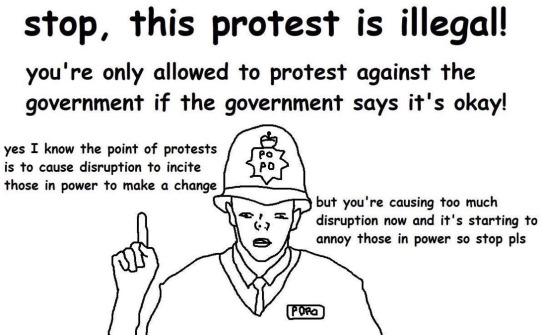
238 notes
·
View notes
Video
call to action for the Ohio train derailment in East Palestine
https://www.house.gov/
https://www.transportation.gov/meet-secretary/secretary-pete-buttigieg
https://twitter.com/PeteButtigieg
#tiktok#collective action#capitalism is violence#ohio#train derailment#east palestine#profits#CEO#water pollution#air pollution#union workers#unions#rail workers#rail industry#nationalize#Norfolk rail#toxic waste#call to action#labor movement#labor vs capital#capital vs labor#labor rights#labor
104 notes
·
View notes
Text
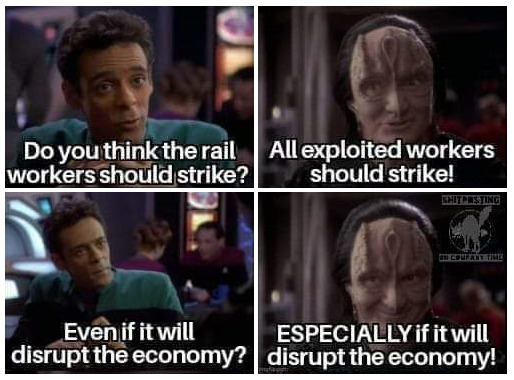
119 notes
·
View notes
Text
Y’know what does worry me about a rail worker strike? All the people who need things like medicine or certain foods or medical devices who won’t get what they need because some rich assholes don’t want to treat railway workers as human. That’s what I worry about. Not like “but the economy!” no, it’s like “but the people who need the help that’s far away”. And what makes me more angry about it is the whole thing the rich do not care who is caught in that crossfire. They just don’t. Like fuck the people who are so wealthy they’re just like, holding the economy & the people who rely on goods being transported by train hostage because “oh but time off & sick leave & treating these people as human would make me slightly less rich” like fuck the economy and the ultra rich, but I hate to think about the plebeians who will need stuff in the meantime because these rich asshats are just too selfish to even care
eat the rich, they have no problem eating you
#rail strike#railroad#rail workers#usa news#usa politics#workers rights#eat the rich#they have no problem eating you
117 notes
·
View notes
Photo

Mattie Lubchansky.
139 notes
·
View notes
Text

AI prompt: I wish all railroad workers a very strike that destroys capitalism ✊🏾
[likes charge|reblogs cast]
#ai prompt#technospellcasting#techno witchcraft#technomancy#chaos magick#a digital psionic engine to create sympathetic vibes#digital spellcasting#cyber witchcraft#cyberspells#metawixen#hypervisual#digital talisman#metasigil#railroad strike#rail workers#anti capitalism
60 notes
·
View notes
Text
One of the largest freight railroads in the world, CSX, announced a deal with two rail unions, including Weaver's, to provide four days of paid sick leave annually, plus the option of converting three personal days into additional paid sick time.
"It's very exciting. It's a good faith effort to show that we're essential employees rather than expendable," Weaver said this week. "It gives me hope."
In fact, more discussions are already underway, with unions reporting they have reopened negotiations with other freight railroads to add paid sick leave.
36 notes
·
View notes
Text

48 notes
·
View notes
Text
As we learned in the recent rail union contract negotiations, ruthless profit-seeking has made conditions for railworkers unbearable. It’s also made railroads less efficient. America badly needs a national rail service owned and operated for the public good.
Earlier this year, the federal board charged with overseeing America’s rail network called a hearing to discuss widespread complaints about higher costs and poor service. Predictably enough, rail executives sought to blame the pandemic and labor shortages for the likes of gridlock and supply-chain breakdowns. But the dysfunction on America’s railroads is neither a product of COVID-19 nor the result of nebulous constructs like the so-called “Great Resignation.” As Matthew Buck explained earlier this year in an article for the American Prospect, the single biggest contributors have been corporate monopolism and financialization — both of which contributed to the horrendous working conditions at the center of the recent showdown in Congress.
Thanks in large part to Jimmy Carter and Ronald Reagan–era deregulation, American rail has steadily become more consolidated — the number of major carriers shrinking from forty to just seven between 1980 and the present day. Unsurprisingly, there’s little evidence that this shift has made rail transport any more efficient. It has, however, made the rail business incredibly lucrative. In an effort to wring as much profit from railways as possible, company barons have in turn cut costs, laid off workers, and introduced a host of other changes ostensibly geared to improving the quality of service. Central to this project has been something called “precision scheduled railroading” (PSR), the brainchild of late executive Hunter Harrison. Under PSR, as Buck explains:
"Railroad management’s job is to drive down the 'operating ratio,' or operating expenses as a percentage of revenue. In other words, Wall Street judges railroads’ success based in part on spending less money running the railroad and more on stock buybacks or dividends. Theoretically, focusing on lowering operating ratios pushes railroads to be more efficient, to do more with less. But when railroads have the market power they have today, they can instead 'do less with less,' as shippers and workers put it."
The upshot, in addition to appalling conditions for an ever-diminishing workforce, is that railways — a basic utility relied upon by millions every day for commerce and transport — are now treated more than ever as an asset designed to be milked for profit than a service structured to meet need.
For shareholders, the whole arrangement has worked out brilliantly. As companies like Union Pacific have laid off tens of thousands of workers, revenues have gone through the roof and billions have been paid out through dividends. Measured against more relevant metrics, of course, it’s been a catastrophe: even before the pandemic, both overall productivity and the number of usable track miles were down. When COVID-19 brought with it backlogs, derailments, and higher costs, however, it became glaringly clear that cutbacks to the railways driven by their hyperfinancialization have rendered them a significant weak point in the country’s supply chain.
One lesson in all this is that an enterprise can be profitable — and thus “efficient” in a narrow business sense — without actually working particularly well or operating effectively to service the needs around which it’s ostensibly erected. This is true in most industries, but it has always been particularly applicable in the case of rail. As the late historian Tony Judt once explained, the very idea of competitive or market-based railroads is, for very straightforward reasons, fundamentally incoherent:
"You cannot run trains competitively. Railways — like agriculture or the mail — are at one and the same time an economic activity and an essential public good. Moreover, you cannot render a rail system more efficient by placing two trains on the same track and waiting to see which performs better: railways are a natural monopoly. . . . Trains, like buses, are above all a social service."
Judt was primarily writing about Britain’s railways, but the essence of his argument applies to America’s as well. Actual “competition” is a non sequitur when it comes to railroads and, fittingly enough, private monopolism has left a handful of rail giants with what are essentially noncompetitive fiefdoms in different corners of the country. Deregulation has additionally allowed the tiny remaining handful of companies to discontinue service on unprofitable routes, leaving whole regions cut off. With greater control and fewer constraints on the terms of their operations, they’ve also been at liberty to raise prices and introduce new fees. Bottlenecks, in fact, often provide further opportunities for such price-gouging — one executive boasting on a 2019 earnings call that Union Pacific is in a position to “take some pretty robust pricing to the market” (i.e., charge more regardless of efficiency or the quality of service).
A further corollary, of course, is that those who actually make the trains run and keep the tracks in working order have been increasingly expected to do more with less and endure a brutal work culture no reasonable person could possibly defend: having gone three years without a raise, many railworkers are now required to be on call more or less around the clock and expected to report for shifts of up to eighty hours on as little as ninety minutes’ notice. Unable to take time off even in the event of an emergency, many also face punitive attendance policies that can see them suspended or terminated if they can’t show up for work.
Freshly reimposed by a Democratically controlled Congress without substantive modification, these horrendous conditions are a potent symbol of what happens when an essential public good like rail is turned over to Wall Street. Smashing the monopolies, introducing stricter regulation, and giving workers paid time off would certainly be a good start. For the sake of its supply chain, transport needs, and basic economic fairness, however, what America ultimately needs is a single national railway, owned and operated in the public good.
#us politics#news#jacobin#jacobin magazine#2022#nationalize the railroads#railroads#railway workers#rail workers#luke savage#op eds#rail strike#unions#union workers#worker's rights#worker's union#Union Pacific#railroad monopolies#paid sick leave#paid time off#introduce stricter regulation#deregulation#financialization#supply chain#Matthew Buck#American Prospect
52 notes
·
View notes
Text
The Senate just passed legislation to force rail workers back to work without paid leave coverage. The media calls it “averting a strike”. The two parties in the U.S. absolutely love to work together and collaborate when it involves crushing striking workers.
A government breaking up strikes while their workers beg for basic human benefits in exchange for their labor is actually authoritarian.
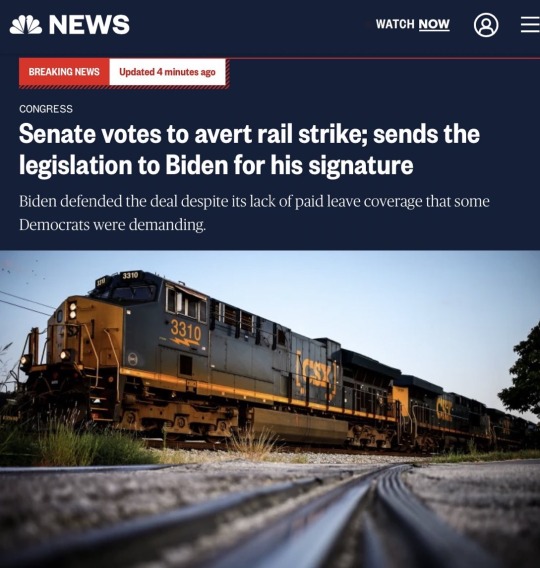
#rail workers#strike#strikes#politics#senate#workers rights#socialism#labor rights#capitalism#authoritarianism
96 notes
·
View notes
Video
East Palestine
#tiktok#more perfect union#east palestine#department of transportation#rail workers#us politics#politics#us political lobbying#rail strike#Norfolk rail#railroad workers#railroad regulation#bill johnson#gerrymandering#us congress#congress#voting rights#voting#regulations#deregulation#train derailment
46 notes
·
View notes
Text
Another from the Durand station
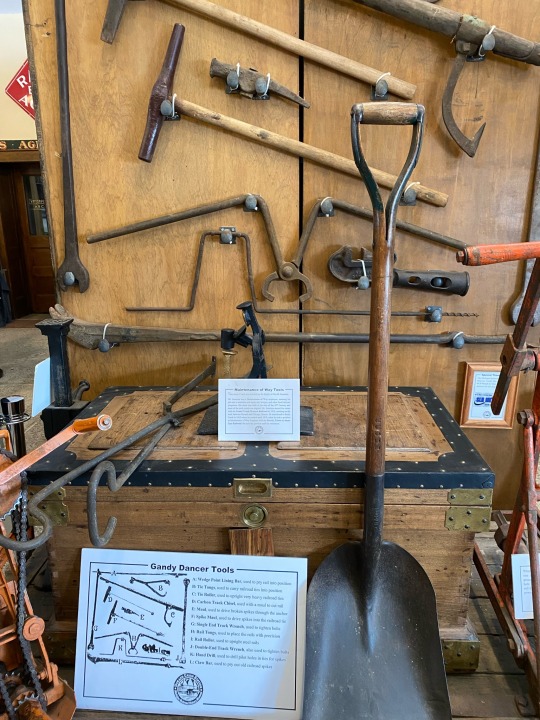
In the museum area are many things. Here is a display of some old railroad workers’ tools.
22 notes
·
View notes

